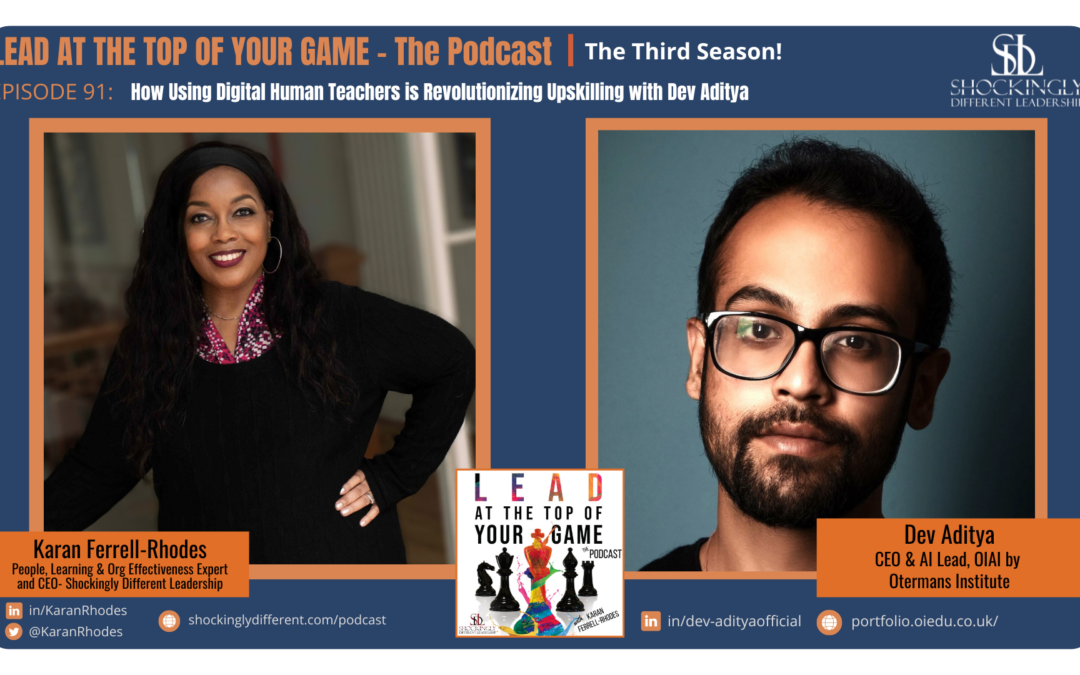IN THIS EPISODE, KARAN FERRELL-RHODES INTERVIEWS DEV ADITYA.
Digital human teachers are transforming upskilling by delivering personalized, scalable education with AI-driven precision. By providing interactive, real-time feedback and adapting to each learner’s needs, they bridge educational gaps and enhance productivity, making advanced learning accessible worldwide and revolutionizing the future of professional development.
Dev Aditya is an award-winning entrepreneur and educationist with legal expertise, leading an international organization that leverages AI to upskill 25,000 students over the next two years. With a background in higher education, charity work, start-ups, and legal research, Dev excels as a visionary strategist and communicator.

Posted by
SDL Media Team
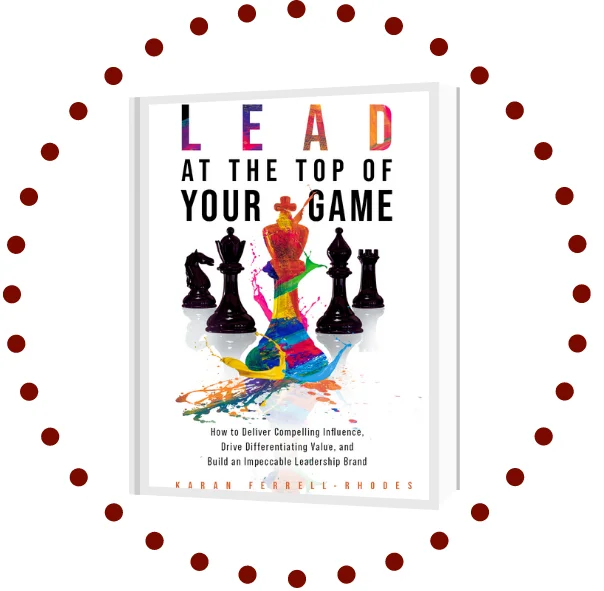
Rather view our video podcast?
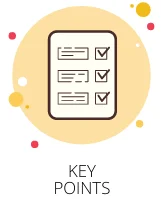
WHAT TO LISTEN FOR:
- What is the mission behind the AI-powered learning program?
- How does human-in-the-loop AI improve corporate and educational learning?
- What strategies are being used to address the talent gap in the tech sector?
- How does the leadership style influence growth in a pioneering field?
- What are the main concerns about the impact of AI on jobs?
- How does the company ensure clarity and direction in its leadership approach?
- What role does courage play in leading at the top of the game?
- How is AI expected to affect productivity and job roles in the near future?
“[Regarding AI], There is always a human in the loop.”
FEATURED TIMESTAMPS:
[03:11] Dev’s Passions
[04:31] Dev’s Journey of Innovation in AI Education
[06:59] AI-Powered Learning for Education and Corporate Training
[09:46] Human-in-the-Loop AI
[12:13] Targeting the Developing World for Future Growth and Impact
[13:44] Cultivating Skills and Culture in the Face of Sector-Wide Demand
[15:04] A Journey of Problem-Solving and Pioneering in Education Technology
[16:54] Leadership Through Challenge and Trust
[18:53] Future of AI Technology
[22:13] AI and Job Impact
[25:00] Signature Segment: Dev’s LATTOYG Tactic of Choice: Leading with Courageous Agility
[26:53] Signature Segment: Dev’s entry into the LATTOYG Playbook: Leading with Courage and Clarity
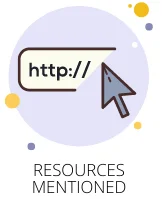
ABOUT DEV ADITYA:
Dev Aditya is an AI expert from London, UK. He led the team that built the first Digital Human AI teacher (OIAI) and was awarded by the UK Prime Minister for his work. Dev has conducted research in AI and HCI with The Alan Turing Institute and Brunel University London. He is currently the AI product lead and CEO at Otermans Institute.
Dev has been an under-30 global innovator and entrepreneur in the UK and Asia, respectively, and is a subject matter expert in AI in Education.
LINKS FOR DEV:
- Website: portfolio.oiedu.co.uk/
- LinkedIn: linkedin.com/in/dev-adityaofficial
- Facebook: twitter.com/Otermans_Edu
- Instagram: instagram.com/oiedu19/
ADDITIONAL RESOURCES FOR YOU:
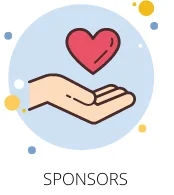
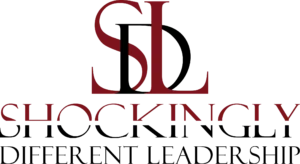
Episode Sponsor
This podcast episode is sponsored by Shockingly Different Leadership (SDL), the leader in on-demand People, Talent Development & Organizational Effectiveness professional services that up-level leader capability and optimize workforces to do their best work.
SDL is the go-to firm companies trust when needing to:
- supplement their in-house HR teams with contract or interim HR experts
- implement leadership development programs that demonstrate an immediate ROI and impact on the business
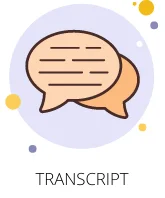
Click the plus button on the tab to access the written transcript:
Episode 91 | How Using Digital Human Teachers is Revolutionizing Upskilling with Dev Aditya
Dev Aditya 00:00
As an AI teacher. It was a female whose name was Beatrice, so they found her to be socially present. There was a lot of engagement, and from that time, that sort of became our focus, and we developed our own model and our own teacher, where our absolute, you know, product and service focus right now is delivering all of this learning purely through AI teachers, because now we can give, in essence, the same teacher to as many million people as can get that teacher in their smart device. There is no limitation anymore.
Voiceover 00:03
Welcome to the “Lead at the Top of Your Game” podcast, where we equip you to more effectively lead your seat at any employer, business, or industry in which you choose to play. Each week, we help you sharpen your leadership acumen by cracking open the playbooks of dynamic leaders who are doing big things in their professional endeavors. And now, your host, leadership tactics, and organizational development expert, Karan Ferrell-Rhodes.
Karan Rhodes 00:30
Welcome back to the podcast, everyone, and thanks for joining another episode designed to help you better lead at the top of your game. Now, as you know, for season three each month, we’re featuring leaders who have fascinating roles in a particular profession or industry, and today’s episode is part of our special series featuring chief technology officers and VP level leaders who lead expansive technology teams. And now enjoy the show. Welcome to another episode, everyone. We’re so pleased to have on today’s show. Dev Aditya and I probably murdered his name, but he’s so kind to let me get away with that with my southern drawl there. But Dev is the CEO and AI lead for OIAI by Ottomans Institute, which is an international organization that’s based in London, and then they focus on research and developing affordable education tools for a global audience using artificial intelligence. I’ve already shared with Dev I’m already a super fan, as I was doing background on his company, because they are doing some absolutely fantastic things. And Dev led a team that built the very first digital human AI teacher, which is amazing within itself. And he leads the company’s mission to upskill 750 million students through soft skills and professional development skills training using AI teachers, and this ensures that no learner is left behind anywhere across the world. So talk about loving the playing field. Dev and his organization are absolutely doing so. So welcome to the podcast, Dev,
Dev Aditya 02:16
Thank you. Thank you for having me, and thanks for the lovely introduction.
Karan Rhodes 02:19
Oh. We’re so happy to have you and I can’t wait to go deep into what you and your organization are doing, but before we do that, we always love to learn a little more about our guests so, just for as much as you feel comfortable, would you just give us a sneak peak into maybe your personal life or passions
Dev Aditya 03:01
Yea I think just about when we started the company and when the pandemic started, I started hiking a lot and I’ve become a little bit of a small peak collector now. I’ve done about 26 peaks in the last 3 years.
Karan Rhodes 03:01
Oh my gosh! Are you serious!?
Dev Aditya 03:01
Yep.
Karan Rhodes 03:03
What was one of the biggest challenges that you found in hiking peaks?
Dev Aditya 03:08
See, it’s kind of like entrepreneurship, right? You always you’re gonna hit the peak, but you never really follow the path you planned. I think, I think that’s always challenging overall any peak you do, I think you know, 5% peaks, you get it right. So, yeah.
Karan Rhodes 03:26
Well, wonderful. Well, I don’t think I’ll ever match that. You’re my inspiration there, but that sounds absolutely amazing, and I bet the views were breathtaking with you. Well, let’s go ahead and delve into OIAI by the ottermans Institute, because, as I mentioned, I just was absolutely fascinated with the great work you’re doing. So can you share a little bit about the your founding journey and how and you are growing the company and the impact these days?
Dev Aditya 03:59
Yeah, sure. So you actually on the founding journey. So I’ll take a little bit of a backtrack then. So me and my co founder, we actually started working in university. So we went to Brunel University, London together. She was the president, I was the vice president of the Student Union. So we started working together. And then after that, we decided to travel a bit. And, you know, we were doing some sort of charitable teaching in Bangladesh and India. And then we saw that there was a big sort of skills development piece that was missing for millions of students. We ended up traveling across three countries, hundreds of kilometers. So then we got off, you know, sort of even before registering the company, created a sort of course, and we got our first MOU with the local government in India. We got it in February. We registered our company in February of 2020, I went to launch the program and got stuck in India for five and a half months because the global lockdown started. But anyway, you know, cutting from that, we digitized the entire program. We still manage to scale to nine countries in the first year. And while scaling, we found another problem, and this time it was that we couldn’t find enough teachers and our trainers. And even when we were finding, you know, quality control, in essence, no two human beings teach in the same way. So there was a huge issue, and we were all doing it remotely. So we thought, let’s try and digitize this. Teachers are sort of one of the more intelligent sort of professions, right? A lot of EQ, a lot of IQ, so you can’t just do it with, you know, x equals to y. So let’s try AI, right? So we tried that, and obviously this is way back. So in January of 21 we created and actually launched our first MVP. It went on to teach refugee learners in UNHCR camps in northern Iraq. And, you know, also around not only the feedback, but the research piece, they found her relatively human, like they found her to be her as an AI teacher. It was a female whose name was Beatrice, so she found they found her to be socially present. You know, there was a lot of engagement, and from that time, that sort of became our focus, and we developed our own model and our own teacher, where our absolute, you know, product and service focus right now is delivering all of this learning purely through AI teachers, because now we can give, in essence, the same teacher to as many million people as can get that teacher in their smart device. There is no limitation anymore.
Karan Rhodes 06:26
Oh, that is amazing. And so who’s your target market? I’m assuming people have to purchase your courses correct.
Dev Aditya 06:36
So very good question. So our mission is to upskill 750 million people by 2030 so we split that up. Obviously, somebody’s got to pay. So we continue to do a lot of what we were doing originally, which is the free delivery. So for instance, our AI teachers are right now, you know, running free in Palestine, because we focus there, because of a lot of disruption with the current ongoing war, etc, that is happening. But who actually pay for our products? So we have two main target markets. One is higher education and further education. A lot of Health Sciences departments start working with us. They see a lot of incredible value, you know, because it’s a very content heavy sort of subject matters, etc. And also corporates see a lot of value. So learning and development in corporates, there are two reasons for this. It’s fairly wide, so I’ll be as succinct as possible. Firstly, from the user standpoint, which is the learner or the employee, from their standpoint, the anything now outside of classroom, learning is also two way conversational. So the AI now learns with them. The AI breaks down each topic into paths questions them before transitioning to the next part. So there is no gap. They can ask any number of questions to the AI by, you know, just raising a hand up, that’s the feature. They can ask any number of questions, do a deep dive, etc. That’s their value add. But what’s the value add for the higher education institution or the corporate now they can see that Jack and Jenny got these questions wrong in the first go. Do they need more support? They can provide the support through the AI teacher or when they meet them next or in the next human training session. More importantly, they can now see that Jack, Jenny and you know, good Nam they ask these questions. Do they have a foundational gap? Why are they asking these questions also at a cohort level or at a batch level? 70% of the users are asking these two questions. Do I need to tweak the program slightly, you know, not finding it out when there is actually a problem, but way before that, that sort of granular understanding is very important for both these institutions. So that’s essentially our absolute focus when it comes to business delivery.
Karan Rhodes 08:49
Quick question on that. So if I’m a student and I ask the AI teacher something, a question, if the AI doesn’t know it and it’s logged, and you all can look afterwards. Is there a physical teacher follow up with the student? So is there still some person involved, or you just use that information to improve the program itself?
Dev Aditya 09:14
Very interesting question. So I’ll go a little bit deeper into it as well.
Karan Rhodes 09:17
See. Let’s go deep.
Dev Aditya 09:20
So there is always a human in the loop. So, you know, this entire data side, right? There is either the L and D lead or the HR lead or the academic. First of all, whatever the AI teaches, the AI can create any content, right? But that’s the exact problem. A company has its own internal processes. The company has its own sensitive data, right? The AI chat GPT, for instance, wouldn’t know that. I wasn’t going to answer that. So what we allow companies are higher even for higher education institutions, you know, Oxford and UK and MIT in US would be teaching the same course, but they have their own notes, slides and papers, right? That’s what makes education different. So what we allow the institutions, the corporates, to do is, upload your own content, so up to 500 pages within three minutes, the AI can take in the content, and it will only teach your students, and the content is saved in your database, so your IP is protected. It’s teaching your content only to your students, and when students ask questions as well, the age old problem of hallucinations, right from Ai, right? It’s answering the questions from your document first, so it’s taking care of all of those things. And again, coming back to the human in the loop, you’re still in charge of the dashboard. So even when the AI is teaching in real time. You don’t like a tone of the AI, you can see the script right? You can even change that in real time. Your paper is a 2021 policy document. You want to add a 24 example. You can edit that in real time. So again, the human is in full control, but all of the laborious work is being done by the AI. That is amazing, fascinating.
Karan Rhodes 10:49
So I have a question about another market. So I truly see where this even can be used. And you mentioned on your site you’re trying to help underserved market that don’t, that may not have the exposure to the level of teaching that you all are able to provide. I was wondering if, like, the well funded nonprofits that sponsor education, because, you know, Upskilling and re skilling is like, you know, the buzzwords these days, I was wondering if those well funded non profits can sponsor, pay for your technology. For and forget the phrase, but third world type of areas that really need access to AI teachers. Is that a target market and now? Or will it ever be in the future? Or no,
Dev Aditya 11:40
It’s absolutely a target market. So given our small team, again, the sales and marketing happens on one side, we already work with partners, where we also give, you know, the pro bono style delivery, as I said, the third model, which you said, we are absolutely open to that, and that’s something we look at. Whenever we have an inbound around something like that, we absolutely work, you know, with them, and that would become more and more of a target market for us, you know, even not at a full sort of business level, but at a cost level, because that, in essence, goes hand in hand with our mission. Because our first mission is to upskill the next generation, and the majority of this generation is in the developing world, where, you know your youth population is higher, but the resources are low.
Karan Rhodes 12:27
Interesting. So as far as so, I’m assuming, and this is a bad thing to do, but I’m assuming that you you always have to have extremely talented talent, because you’re always looking at the development, ongoing development, of your offering or product. And I don’t know how it is overseas right now, but in the US, we have a record low level, low unemployment. So I’m just curious if you find it hard to find and retain top talent that specializes in your area. Or have you been able to, I guess, use who you have and retain who you have pretty well.
Dev Aditya 13:11
I think sector wide, there is a huge sort of, you know, discrepancy between demand and supply. Example, you need 1 million new machine learning engineers by 2025, 2026 new. For us, luckily, our attrition has been very low. No tech people have left us yet.
Karan Rhodes 13:29
Knock on wood. Yeah, it was fantastic.
Dev Aditya 13:31
That’s good. Also, we’ve never, I think, barring once, we’ve never really had to advertise to hire as well, because part of our culture, again, because that’s, you know, we want to upskill the next generation. We always run a lot of volunteering and internship opportunities, and most of our full time hires come through that. So a, we teach and we sort of help improve their skill level. And B, if they really like us, they come in. So that works till now, but when we are going to mega scale, and we are again, we are fundraising again at the moment, right now, and we’ll be fundraising again in the next 12 months at the mega skill part. It might, you know, this model alone won’t hold, so then we’ll be at the mercy of the market forces, and we’ll see how that pans up.
Karan Rhodes 14:13
Wow. And how did you even get interested in the space? How did this even evolve? Because, you know, it wasn’t really a it was a around 10 years ago, but it wasn’t a hot topic as it is now. So how did you even get into this field and in this direction as well? We
Dev Aditya 14:32
We got into education. We found a problem. We couldn’t figure out any other solution. You know, my background is law, right? So,
Karan Rhodes 14:39
Yeah, that’s why I was trying to go. I should have mentioned that, but it was such a transition from law to AI.
Dev Aditya 14:45
Yeah, it was simply it was a problem that we couldn’t solve by hiring more people. We thought we’re going to try and solve this. So I had some technical knowledge by then. We had some technical early members of the team by then, and standard software can’t solve this. So we tried to do AI. And once you tried to do AI, especially at the pioneering field, when you’re leading the company, you have to learn as you go. So we learned as we went, and we were probably too early. We did our first MVP in 2021 me and my co founder had to write 1000s of lines of literal question answers, which is, What could these learners ask in these refugee camps per lesson, and what could be the answer? And we used to use, you know, software like rasa to map that out. You know, simple CSV formats, etc, JSON formats. If it was 2021, generative AI would have already been able to solve it then. But that’s a good thing, because since we started our journey, then we, as a team as well, really understand this entire journey of AI to the bone. That’s why we also develop our own fine tuned models within version three right now, so we are not ramped on top of chat, GPT, etc. We understand this tech very well, and we are sort of at the cutting edge in quite a few areas of this tech
Karan Rhodes 16:01
Oh, that is amazing. Gosh, I have so many questions. I’m trying to think, which is the one I going to get on as soon as possible. Well, let’s move a little bit to like your leadership philosophy. Because, as you know CEO and I guess lead thoughtly, they’re from the tech side, what is your leadership style? If you had to define it, how do you approach leading your organization.
Dev Aditya 16:21
I’ve had a couple of transitions since you’ve asked me. I’ve had a recent transition as well. So I’ll tell you, first of all, I work with and also in this field. By the way, it’s really, really young, right? So I work with a lot of rough diamonds. I too was a rough diamond. I still am, because I believe in lifelong learning, because we don’t know, there is no expert in this field. So I think it’s about challenging people. It’s almost like a coach, where at one level, they might be a little bit angry at you, or, as you say in slang, a little pissed at you, but when you achieve what you do, they really thank you for it. So I think that’s at the fundamental that is my leadership style. I also know, as a co founder, you know, as the company grows, you have to let go and trust others. But again, this one I wanted to bring up now, because this is a recent realization. I think I did that last year a bit too early. So I’ve come back again, me and the co founder, Dr Baldi Ottomans, we’ve come back again right at the center of everything, and I think we’ll take a little bit more time to leave that. We still appreciate that, but I think at very early stage companies, you need to elongate that a bit more. So that’s a realization we’ve had. But in short, it’s about challenging people, telling them nothing is impossible, and it’s more about why is something and how do you think you can solve it, rather than, do you know how to solve it? Because you’re not going to have the answer anyway in the field we are in now
Karan Rhodes 17:44
No, that makes a ton of sense. Absolutely a ton of sense. One other question that I wanted to ask you is, if you have any concerns with how fast the world of AI is progressing, I mean, you hear on all the news channels, you know that there’s some fear from the leaders in global technology companies that it’s learning faster than we know and can keep up with I’m just curious. In your space, are you concerned about that are at all, or do you have containers so much on the technology within your program that you think you’re okay for the short term?
Dev Aditya 18:21
I’m not concerned. See, I’m an optimist in the AI space, right? So I’m not concerned. But for people who are not optimists in the space, I can certainly see why they’re concerned. But it’s certainly faster than what you know, these sort of you know, tips that we see over and over again. It’s certainly faster than the ones we’ve seen before. But it’s not happened. You know, it’s not the first time that it’s happening. If you just look at the beginning of the 20th century, you had three things happening together. You had the Industrial Revolution, you had automobile and you had telephone, right? Coming together, right? Just think, what people who were just 10 years before that on horse cards living, 90% of the population living on farming was going through. So the same thing is happening now, yeah, now from the end of container, from our own organization standpoint, firstly, for our clients, they have containers that, you know, the data, a lot of the data that they upload, etc, on their servers, if they can protect that well, if they want to delete it, they can, similarly for us, we can, eventually, we are a R and D organization, we look at higher intelligence as well. We keep working on that. I’m not using the word general intelligence here, but higher intelligence certainly, that’s something we always look at. But this wider piece of AGI, yes, there could be a risk, because we are not being able to contain what we are creating. But I’ll just give you another example. This always happens, and we, I really hope, can figure that out. So I’ll give an example. Technology really stays when the pros outweigh the cons, right? So all of us use internet today because society by and large has said the pros of the internet outweigh the cons. I’ll name you some of the cons which are very strong, depression, pornography, child pornography, dark web, all of these things exist, but still nobody is saying, pull down the internet, because the pros outweigh the cons. So similarly, you know, nuclear you may talk about Non Proliferation, etc, but you still want to keep some for your own safety, and you still want to look at it to produce energy. So I think AI is going to do a lot of good, and it certainly can do a lot of bad, because all coins have two sides. We’ll just have to hope and see that it’s the group good that triumphs, basically.
Karan Rhodes 20:37
Yeah, I can see that as well. I think it’s something that would just have we all have to just be conscious of right as we move forward. And I think it’s I’m kind of like you. I’m a glass half full kind of gal. I extremely I see the potential in it. Yes, it will change and the way we live and evolve and do work around the world. But I see I’m like you. I see the good outweighing the bad, and a lot of that is just knowing the risk right and trying to solve for that as you continue with development, I’m curious, where have you heard of any one in the learning the development space afraid that they’re going to lose their jobs, like teachers or trainers at corporations or what have you, or their jobs will be reduced. I personally feel that this can be a help where they could be more strategic, it frees up their time to be a lot more strategic. But that’s me. But I’m curious if you’ve heard any concerns from the market around your product and the impact on jobs or other things.
Dev Aditya 21:40
I’m smiling because I just spoke about this at the Hillingdon Chamber of Commerce this morning, they were asking the same question. But I actually have a strong view on this, and I think now the market has the answer, and this answer is not going to change till 2030 because I’m more certain I’m saying it’s not a personal view. I think it’s a strong view. Until 2030 your jobs are not going to be taken away by AI. I don’t know beyond that. I’m going to be very clear about that as well, but until 2030 a lot of money is going to be spent on giving you AI tools in the corporate space, L and D, for instance, in the education space, to improve your productivity, to take away mundane tasks from you, to make you 2x 3x more productive, or to help you do the work that you want to do. So that’s where we are. Could that lead to a point beyond 2030 where even if you’re not losing a job, the jobs in that slab are lessening because the single person can do more? Could be that part. We’ll have to wait and see, because we thought that AI would take away the jobs of the blue color workers first, right? But it came out and took away the creative jobs first. So you don’t know, but until 2030 I’m very certain it’s not going to take jobs. It’s going to improve your productivity. But there is one caveat there, you know, the CEO of Nvidia Jensen Huang, etc, saying, and you can actually quote, unquote that, because he said it best, I think, which is, in the next couple of years, AI won’t take your job, but people using AI will, and it’s logical, because it’s just going to make them 10 times more productive than you are.
Karan Rhodes 23:10
I love that. And, and who mentioned that, I’m gonna have to quote that in the show notes,
Dev Aditya 23:14
Jensen Huang, he’s the CEO of Nvidia. Oh, you know one of the leads at the moment.
Karan Rhodes 23:21
Yes, Nvidia, yep, awesome. Well, gosh, could talk about this all day? Well, you know, one of the things we love to do is ask our guests about the tactics that came out of our research on leadership execution of high performing leaders. And we love to ask, you know, which of the tactics that we wrote about really resonated with you, and you were so kind to share earlier with me that leading with courageous agility really popped out for you and for my audience members haven’t read the book yet. Leading with courageous agility is all about having the courage and the fortitude to take calculated risk and stand up for what you believe in, even when the future consequences are unclear. It’s all about having the courage to kind of take in information and still have the courage to take baby steps, even if you’re unsure about what’s going to happen in the future. And it makes a lot of sense knowing the world that you work in in AI, but I love to hear from your own words why leading with courageous agility is very important for leaders.
Dev Aditya 24:28
Well, I think part of the story actually unraveled when we spoke naturally, which was good, but if you just look at, you know, our own story as well, both the co founders were not, you know, traditional AI people, right? She was a cognitive neuroscientist. I was a lawyer, or a student of law who graduated and we went into AI because we tried to solve a problem of education. So so much of difference, right? And that itself shows you know this innate characteristic, because if you believe in something, you believe that teaching is going to solve the problem, not just giving free books or YouTube or Khan Academy to the world, you need a teacher to solve it. That conviction is going to try and is going to push you to try and find a solution, even if it is not in your comfort zone. For instance, AI, similarly, the work we do as well. Every time we say, can we make the teacher do this? Right? The answer, if you look at literature out there is no, you have to look for possible solutions, create your hypothesis, fail 10 times, created the 11th time. So absolutely, for this industry and for our company, it’s important, I think, for any industry who wants to win the cutting edge, this is absolutely important. Because whenever you’re at the cutting edge, or whenever you’re trying to disrupt something as well, right? Or you want to be a sector leader, and something you’ve got to do something that you’ve never done. You’ve got to do something that they’ve never done, right? And you absolutely need your own courage and conviction and to take, you know, decisions that may lead you there. And sort of like, you know, liking to climb peaks as well. You You never really know where you you know which path you’re going to take, but you know you need to reach the top. So right? That agility needs to be there. And, yeah, it’s a very good and very sort of robust leadership skill set to have for any segment of business you’re in.
Karan Rhodes 26:14
Yeah, I love that. And so, Deb, what does it take for you to personally lead at the top of your game?
Dev Aditya 26:20
For me, having this courage every single day, I think that’s very important. And I think clarity, it’s not just clarity. For myself, and I’ve gone through brain fogs, etc, because obviously it’s a stressful job, but for me, I think now that I’ve learned over the last four years, clarity is when the entire organization is pointing in one way, and they do that when they get the clarity from you. So it’s transcendental clarity in that manner. So firstly, you need to be clear where you’re going and take your bets and your courage. But that needs to transcend as well. If that communication piece is missing, it becomes a jigsaw, not an arrow. You want it to be an arrow.
Karan Rhodes 26:59
Love that, well, we’re gonna have a ton of information about you and your organization in the show notes, but I’d love to give you a chance to give voice to where leaders and companies can find you to learn more about the great work you all are doing.
Dev Aditya 27:13
Yeah, absolutely. So I think one very good point, because we have thought about it, and thanks for that. Karan, so you know, any NGOs, etc, who want to give a teacher, you know, to beneficiaries and learners, please reach out to us. Any corporates who may want to look at, you know, experimenting in your learning and development, reach out to us. Any institutes reach out to us. Very simple, just email us on info@OIEDU.co.uk, and that’s also the website. So thank you,
Karan Rhodes 27:43
Fantastic, fantastic. And do you serve markets across the globe, or only in certain regions? We
Dev Aditya 27:51
We are in 15 markets right now, but we are global. So happy to hear from anyone.
Karan Rhodes 27:55
Okay, awesome. Well, thank you so much. Dev, this was so informative. I could have had you for about two more hours, but I want to give you kudos again for all the great work you and your team are doing. Me being a leadership development professional I’m I’m just absolutely fascinated, and we’ll definitely be keeping track and seeing how you all continue to grow. And good luck on your next round as well.
Dev Aditya 28:19
Thank you so much. Thanks for having me, and I really enjoyed your questions. By the way, quite very.
Karan Rhodes 28:25
Thank you, and thank you two listeners for tuning in to another episode of the lead at the top of your game podcast. As you know, I always just ask one thing, if you can please like and subscribe to the show and share with just one friend so that we can be sure that they, too, have the tools that they need to lead at the top of their game. Thanks so much. And see you next week. And that’s our show for today. Thank you for listening to the lead at the top of your game podcast, where we help you lead your seat at any employer, business, or industry in which you choose to play. You can check out the show notes, additional episodes, and bonus resources, and also submit guest recommendations on our website at leadyourgamepodcast.com. You can follow me on Twitter, Facebook, Instagram, and LinkedIn by searching for the name Karan Rhodes with Karan being spelled K a r a n. And if you like the show, the greatest gift you can give would be to subscribe and leave a rating on your podcast platform of choice. This podcast has been a production of Shockingly Different Leadership, a global consultancy which helps organizations execute their people, talent development, and organizational effectiveness initiatives on an on-demand, project, or contract basis. Huge thanks to our production and editing team for a job well done. Goodbye for now.

Want to be a LATTOYG Podcast Guest?

Want Karan to be Your Podcast Guest?
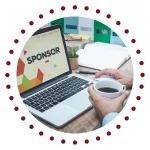
Want to be a Podcast Sponsor/Advertiser?
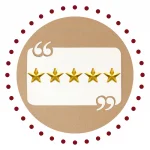
Like the Show? Please Leave a Review
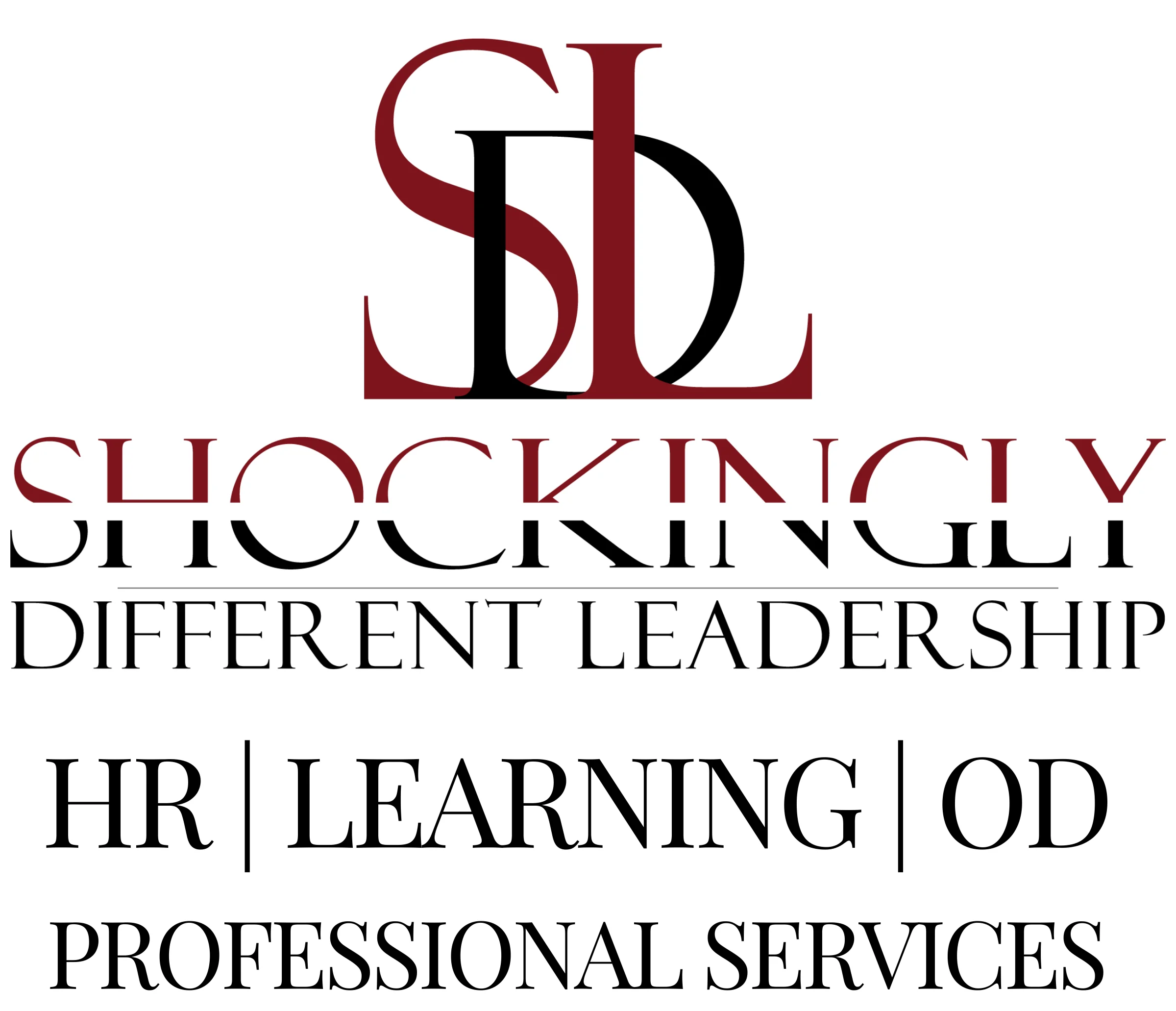
#KeepInTouch
via our podcast alerts
Subscribe now to discover why thousands of monthly listeners who are passionate about doing their best work prioritize time each week to listen to the Lead at the Top of Your Game podcast.
#AboutSDL
Shockingly Different Leadership is a human capital professional services consultancy that provides organizations access to the best consulting expertise in the areas of Talent Development, Organizational Development, and Human Resources – on an on-demand, project, or contract basis.
#WhereToFindUs
MAILING
4480-H South Cobb Drive
PMB 219
Smyrna, GA 30080
PHYSICAL
2121 NewMarket Parkway
Ste. 108
Marietta, GA 30067
#ContactOptions
Customer Service Email:
service@shockinglydifferent.com
Call or Text:
770-384-1103
#Office Hours
MON-FRI
8:30 AM – 6:30 PM
Weekends By Appointment

